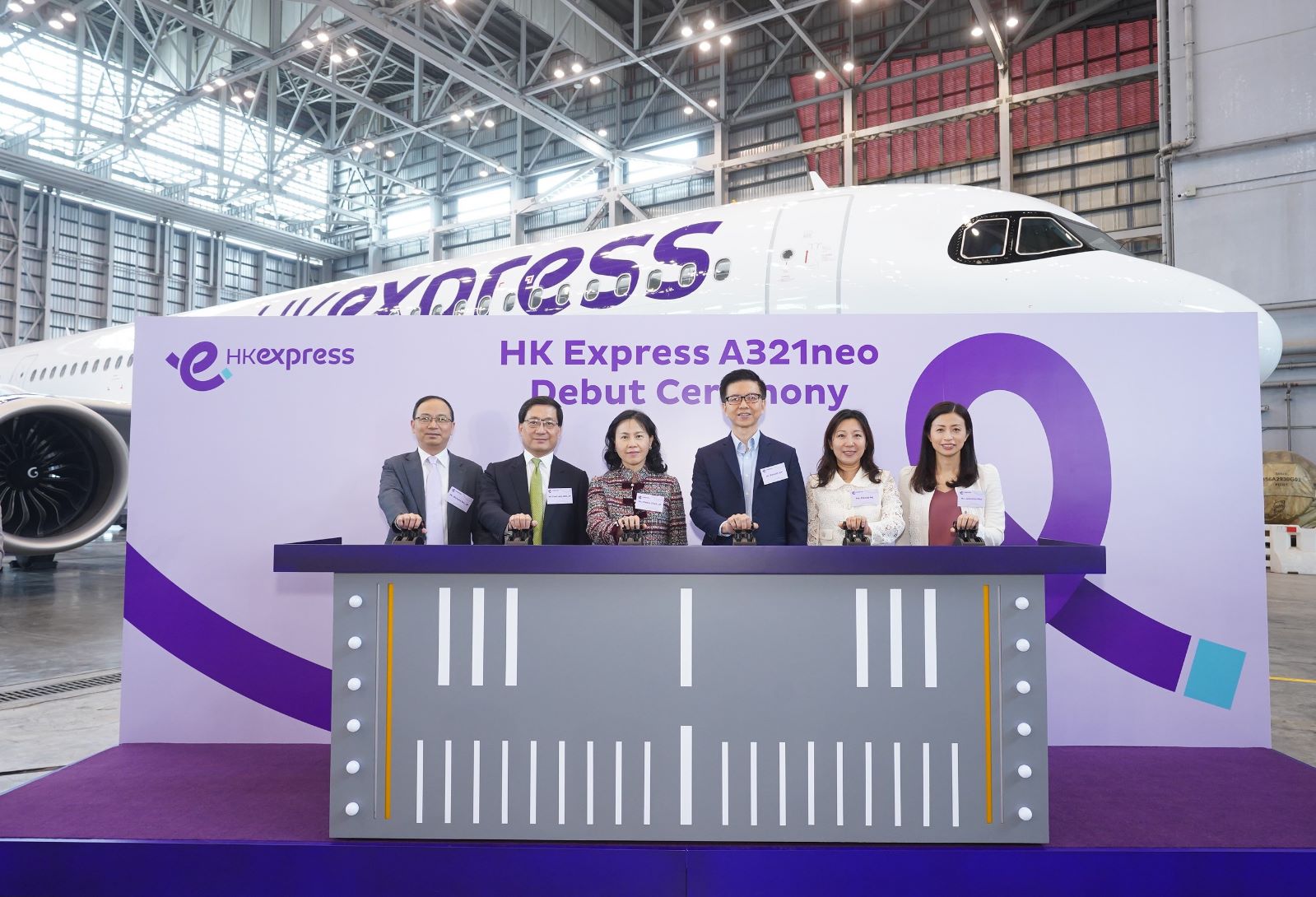On Friday 24 March, HK Express, a member of the Cathay Pacific Group, took delivery of its very first A321neo. The aircraft is the first of 16 Airbus A321neos that will be delivered over the next two years, which is strategically timed with the anticipated full operation of the Three Runway System at Hong Kong International Airport (HKIA) by end-2024.
“We’re thrilled to welcome the state-of-the-art A321neo aircraft to our fleet at this critical time as demand for international travel remains robust,” said HK Express CEO Mandy Ng. “The upgrade marks another milestone in our history as we continue to expand our footprint in Asia, while remaining committed to modernising our operations for a better and more sustainable future. The delivery also demonstrates our confidence in the Asian market, with Hong Kong making a full comeback on the global stage.”
The aircraft was financed by a sustainability-linked Japanese Operating Lease with Call Option (JOLCO) structure provided by Crédit Agricole CIB (CACIB), which acted as global arranger and sustainability structurer, lender, facility agent and security trustee.
The financing terms are linked to the Cathay Pacific Group achieving certain sustainability-linked targets related to the proportion of new generation aircraft in its fleet and the gradual increase in the use of Sustainable Aviation Fuel (SAF) by Cathay Pacific. This follows another sustainability-linked financing arrangement for the Cathay Pacific’s A321neo aircraft delivered in June 2022 for which CA CIB also acted as Sustainability Structurer.
Cathay Pacific announced on March 30 that it had teamed up with the State Power Investment Corporation (SPIC) and signed a Memorandum of Understanding (MoU) to develop Sustainable Aviation Fuel (SAF) supply chain in China. The agreement will cover four SAF plants under SPIC.
HK Express has reiterated its push to becoming a more sustainable airline while remaining committed to its low-cost carrier business model. The airline notes that the new A321neo, incorporating the latest engines, aerodynamic advances and cabin innovations, offers a reduction in fuel consumption of up to 20% per seat.
Aside from fleet modernisation, HK Express also maintains that it is placing renewed focus on leveraging advanced technologies and awareness campaigns to build a more sustainable operation, including the Passenger Carbon Offsetting Programme, which will be introduced in the second half of 2023.
With demand for leisure travel recovering strongly in Hong Kong, the Greater Bay Area and the rest of Asia, HK Express says that it is witnessing a “strong growth trajectory, with flight frequencies increasing rapidly from 10% of pre-pandemic levels in September 2022 to over 80% this February”. The airline expects flight frequencies to return to pre-pandemic levels in the coming weeks, with more than 400 flights per week, and exceed pre-pandemic levels during the summer with more than 500 flights per week.
HK Express currently operates 27 aircraft, including five Airbus A320ceo, 10 A320neo, 11 A321ceo and one A321neo. The average age of the fleet is 5.7 years.
At the A321neo debut ceremony, HK Express unveiled the new aircraft livery. which reflects the low-cost carrier’s latest brand identity. The aircraft’s body is painted in shades of purple and white, embellished with the new Cyan, while the new “e” shaped journey symbol is painted on winglets, vertical stabiliser and the bottom of the fuselage.

